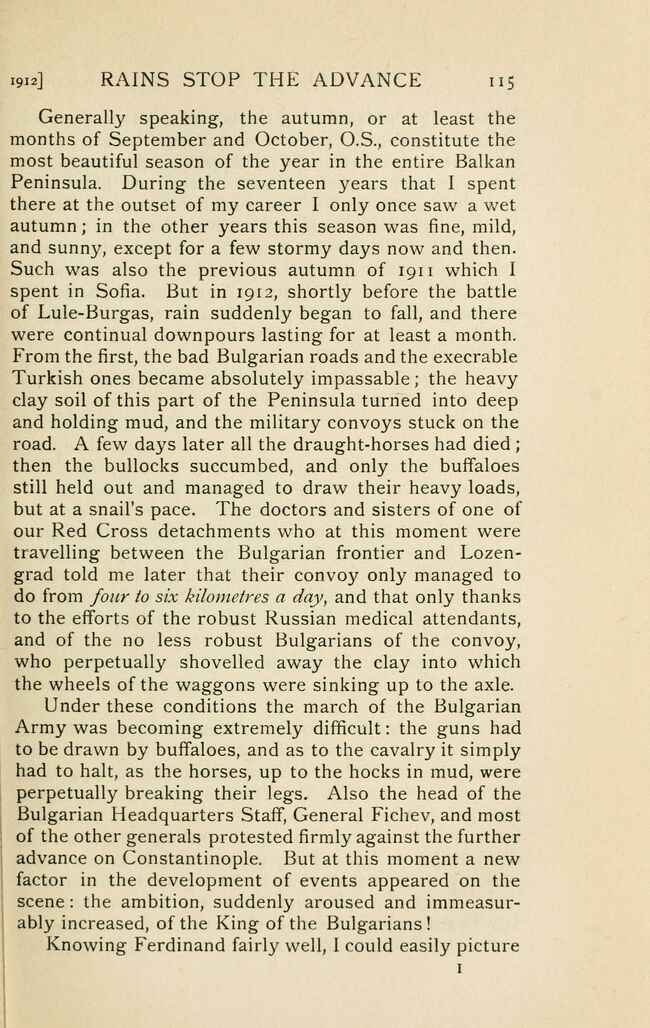
Full resolution (JPEG) - On this page / på denna sida - IX. The Balkan war, 1912

<< prev. page << föreg. sida << >> nästa sida >> next page >>
Below is the raw OCR text
from the above scanned image.
Do you see an error? Proofread the page now!
Här nedan syns maskintolkade texten från faksimilbilden ovan.
Ser du något fel? Korrekturläs sidan nu!
This page has never been proofread. / Denna sida har aldrig korrekturlästs.
1912] RAINS STOP THE ADVANCE 115
Generally speaking, the autumn, or at least the
months of September and October, O.S., constitute the
most beautiful season of the year in the entire Balkan
Peninsula. During the seventeen years that I spent
there at the outset of my career I only once saw a wet
autumn; in the other years this season was fine, mild,
and sunny, except for a few stormy days now and then.
Such was also the previous autumn of 1911 which I
spent in Sofia. But in 1912, shortly before the battle
of Lule-Burgas, rain suddenly began to fall, and there
were continual downpours lasting for at least a month.
From the first, the bad Bulgarian roads and the execrable
Turkish ones became absolutely impassable; the heavy
clay soil of this part of the Peninsula turned into deep
and holding mud, and the military convoys stuck on the
road. A few days later all the draught-horses had died ;
then the bullocks succumbed, and only the buffaloes
still held out and managed to draw their heavy loads,
but at a snail’s pace. The doctors and sisters of one of
our Red Cross detachments who at this moment were
travelling between the Bulgarian frontier and
Lozen-grad told me later that their convoy only managed to
do from four to six kilometres a day, and that only thanks
to the efforts of the robust Russian medical attendants,
and of the no less robust Bulgarians of the convoy,
who perpetually shovelled away the clay into which
the wheels of the waggons were sinking up to the axle.
Under these conditions the march of the Bulgarian
Army was becoming extremely difficult: the guns had
to be drawn by buffaloes, and as to the cavalry it simply
had to halt, as the horses, up to the hocks in mud, were
perpetually breaking their legs. Also the head of the
Bulgarian Headquarters Staff, General Fichev, and most
of the other generals protested firmly against the further
advance on Constantinople. But at this moment a new
factor in the development of events appeared on the
scene : the ambition, suddenly aroused and
immeasurably increased, of the King of the Bulgarians!
Knowing Ferdinand fairly well, I could easily picture
1
<< prev. page << föreg. sida << >> nästa sida >> next page >>